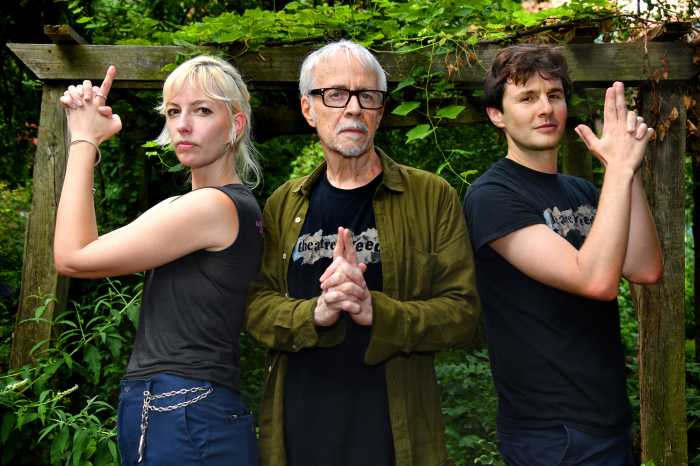By Reverend Donna Schaper
It was in 1990, late in the day at the First Congregational Church in Riverhead. Two women came in and looked me straight in the eye and said, “Can we get married?” I remember saying “No” much too quickly and with a touch of bitterness. It was my bitterness: Why had just a few weeks ago I agreed to a heterosexual marriage on the spot, with a woman nine-and-a-half months pregnant and a man who clearly had a metaphoric noose around his head?
I had agreed to perform that ceremony, reluctantly, with a kind of sadness. The other two children sat in the front row. The mother of the bride stood up for her. The sanctuary was eerily empty.
I hastened to say to the two women that I would be glad to perform a civil union but marriage was something the state owned and there was no legal way for them to be legally joined. I remember walking into the sanctuary that afternoon, with the last light of the day around us, feeling duplicitous, sad, phony and not representing anything about the God I know to anyone. I was a lackey of a bad state, a mean state and a state that affirmed heterosexuals, not gays, in moral and sacramental behavior.
We performed a holy union that afternoon. The two women stared deeply into each other’s eyes. They knew what they were doing: They were pledging themselves to each other. They had already been in a holy union and now the God of that little dusk and that little sanctuary joined their sacrament.
The first thing I have never understood is why some straights discourage marriage among gays. What horse do they have in that race? Is not one of the stereotypes against gays that they are “promiscuous”? Why would we not want fidelity as a moral and family value? The second thing I have never understood is why straight marriage would be threatened by gay marriage. The third thing I have never understood is why straight people are mean to gay people. I just don’t get the powerful resistance many so-called Christians have to gay marriage. It strikes me as the gospel of hate, not love, the gospel of fear, not confidence. It strikes me as the marriage of the Church to one order of marriage, based in the 1950s version thereof, with no remembrance of how Jesus was celibate and Joseph a man of many wives. Sociologically and spiritually, marriage just keeps changing.
Fortunately, attitudes are changing. Those who measure attitudes on these matters assure us that people under 40 join me in not getting it. People over 40 are beginning to get it. The number of people who oppose gays or gay marriage is decreasing rapidly. Additionally, progressive religious organizations are getting on board and performing as many holy unions as we can. The California courts have just figured out that banning gay marriage is unconstitutional — and New York simply needs to convince a few more legislators of same. Justice is very very close in New York.
A historical parenthesis matters. More and more religious bodies — no, the Roman Catholics are not the only religious body — are understanding the justice necessary to the sacrament of marriage. On Mon., July 4, 2005, in Atlanta, Georgia, the governing body of the United Church of Christ, direct descendant of the Mayflower Pilgrims, voted overwhelmingly to “affirm equal marriage rights for couples regardless of gender,” thereby becoming the first mainline denomination, and the largest Christian denomination in the world, to support same-sex marriage.
Endorsing gay marriage has surely lost some members and some churches; just as surely, it has attracted more members and churches, most notably the 5,000-member Victory Church in Stone Mountain, Georgia, a largely African-American church that could no longer be at home among discriminating heterosexists. We are drinking, as Bishop Robinson, Episcopal bishop of New Hampshire, says, the last dregs of a bad cup of wine: Heterosexism is over. Religious people will look back in 10 years — the way we now look back at slavery and the before civil rights era — and say, “What took us so long?”
Gay marriage will come nationwide; it will be ordinary to our children. It will be more than just gay marriage: It will also free scriptural interpretation from meanness and the cementing of revelation. I don’t know that my little union in Riverhead that day was the first one on Long Island; I hope not. I especially hope that it will not be the last but will instead join the great stream of people who sacramentalize and legalize the feelings they have for each other.
Schaper was pastor at First Congregational Church of Riverhead from 1987 to 1993 and is currently senior minister of Judson Memorial Church on Washington Square.




































